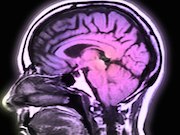Impulse control disorders strongly associated with dopamine agonist use
THURSDAY, June 21, 2018 (HealthDay News) — For patients with Parkinson’s disease (PD), dopamine agonist (DA) use is associated with incidence of impulse control disorders (ICDs) in a dose-effect relationship, according to a study published online June 20 in Neurology.
Jean-Christophe Corvol, M.D., from the Assistance Publique Hôpitaux de Paris, and colleagues used data from a multicenter longitudinal cohort of consecutive patients with PD with no more than five years of disease duration at baseline. Patients were followed up annually up to five years to examine the longitudinal dose-effect correlation between dopamine replacement therapy and ICDs. During face-to-face semi-structured interviews with movement disorder specialists, ICDs were evaluated.
The researchers found that 86.6 percent of the 411 patients took a DA at least once since disease onset. The five-year cumulative incidence of ICDs was 46.1 percent in 306 patients without ICDs at baseline (DA ever-users, 51.5 percent; DA never users, 12.4 percent). There was an increase in the prevalence of ICDs from 19.7 percent at baseline to 32.8 percent after five years. There was a correlation for ICDs with ever DA use (prevalence ratio, 4.23). There were independent associations for lifetime average daily dose and duration of treatment with ICDs, with significant dose-effect relationships. After discontinuation of DA, ICDs progressively resolved.
“ICDs were strongly associated with DA use with a dose-effect relationship; both increasing duration and dose were associated with ICDs,” the authors write. “ICDs progressively resolved after DA discontinuation.”
Several authors disclosed financial ties to the pharmaceutical industry.
Copyright © 2018 HealthDay. All rights reserved.








